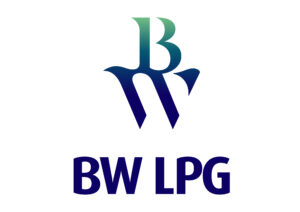The Voice of Martin Ackermann, CEO of BW LPG
Martin Ackermann, CEO of BW LPG and WLPGA Board member, shares his views on the future of LPG propulsion.
 The Voice: Greetings, Martin, and thank you for speaking with WLPGA. Tell us about this exciting announcement BW LPG made recently on LPG propulsion.
The Voice: Greetings, Martin, and thank you for speaking with WLPGA. Tell us about this exciting announcement BW LPG made recently on LPG propulsion.
Martin Ackermann: Thank you for the opportunity. It is correct that we recently announced that we have signed contracts including future options for the retrofitting of four dual-fuel engines capable of burning LPG. Our vessels will be the first of its kind when installation is completed in 2020, and timing is perfect as it coincides with the enforcement of IMO’s global sulphur emissions cap changing from 3.5% to 0.5%. We are quite proud of this landmark, and something that we are very proud of. BW LPG has been preparing for IMO 2020 for years and this is the culmination of our efforts to ensure we do our part for a cleaner future.
The Voice: How good, exactly, are these LPG-propelled engines?
Martin Ackermann: In short this is a both a very clean and very fuel efficient solution. Having dual-fuel engines means we are “IMO forever” as we will be using fuel that has a greener emissions profile, including an inherent compliance with all current and future sulphur oxide emissions regulations. Sulphur oxide emissions will be reduced by up to 97 percent which also means that we will go beyond IMO’s global 0.5% sulphur emissions cap to also be in full compliance with Emission Control Areas (ECA) and Sulphur Emission Control Areas’ (SECA) 0.1% sulphur cap. In addition, with LPG fuel, BW LPG will reduce emissions of particulate matters by ~90 percent, greenhouse gases by ~25 percent, and nitrogen oxides by ~20 percent. Above and beyond compliance, BW LPG is proud to move the maritime industry a step towards a cleaner future.
Apart from the environmental benefits, we are also looking at compelling reasons on the financial and operational fronts. As a summary, in addition to savings from reduced fuel consumption, we are buffered from price sensitivity to post-2020 fuel price scenarios with full dual fuel flexibility. Our vessels will reduce fuel consumption by ~11 percent when running on LPG when compared with compliant fuels. We will also have easy storage of fuel, faster refuelling and wide availability of bunkering ships and facilities. Operationally, engines are cleaner whereas the fuel flexibility and full redundancy ensure uninterrupted operations. All these ensure that LPG is a long-term sustainable marine fuel.
The Voice: Why is BW LPG investing resources into designing and retrofitting engines?
Martin Ackermann: This retrofitting is just one way in which we ensure that our shareholders invest in a forward-looking company that positions itself well for future challenges. I think the broader question is this: why invest in technology and R&D? Retrofitting is but one part of BW LPG’s technical strategy to comply with IMO2020. More importantly, it shows our long-term market views and how willing we are to invest in future-proof innovative solutions that promote LPG as a green fuel. We embrace change and we want to innovate and act for tomorrow.
The Voice: Why not scrubbers? Many in the industry are looking at scrubbers as a solution to IMO 2020.
Martin Ackermann: We have of course done a comprehensive internal study of all alternatives to meet IMO 2020’s sulphur regulations. The main objective behind the regulation is for the world’s shipping fleet to reduce pollution. We believe the best way is to provide clean fuel from the source, just as lead was removed from gasoline at the pump in the early 1990s. There is much speculation around fuel cost spreads, heavy fuel oil availability, long term durability of scrubbers, refinery’s ability to deliver and cost of compliant fuel etc. We do know that more than 90% of the world’s commercial fleet will be using compliant fuel, and at BW LPG, our position is that every shipowner has its own technical strategy based on the technical specifics of their vessels, trading patterns, market views and investment capabilities. We have a young fleet and we believe, that opting for a combination of LPG and cleaner compliant fuel oil is a more suitable and sustainable solution for the environment and BW LPG.
The Voice: What kind of timeline are we looking at?
Martin Ackermann: The retrofittings will take place in conjunction with scheduled drydockings, and vessels will be ready with LPG dual fuel capabilities starting 2020.
The Voice: There are some in the industry who are looking to postpone IMO 2020. What are your thoughts?
Martin Ackermann: Developments towards gas propulsion could be a real step-change for the industry in environmental and economic terms. We understand that change takes time and the impact of IMO 2020 is estimated at USD 60 billion. However, we see, every day, the need to change our modus operandi as consumers, citizens and businesses work together to preserve natural resources and ensure a cleaner future. The maritime industry has always contributed to progress through trade and connecting the world. IMO 2020 regulations are long awaited, and we look very much forward to acting responsibly and playing our part in the transition to address the world’s environmental challenges.
The Voice: What benefits do you see as being a member of the WLPGA?
Martin Ackermann: For BW LPG the World LPG Association is the voice of the global LPG industry, and it serves to promote, inform and educate about the benefits of LPG across both industrialised and developing countries as well as about the importance of LPG as a feedstock for every-day appliances, construction materials etc. Within the association we also work on new innovative uses for LPG – such as e.g. LPG as a clean marine fuel or LPG for smaller and medium sized power projects. The LPG industry knows almost everything there is to know about LPG, but the outside world does not. The association works as a common non-commercial voice for the entire LPG sector. BW LPG is pleased to contribute in setting the strategy, targets and objectives for the association through its membership of the WLPGA Industry Council, as well as through my recent election to the board of directors of the WLPGA.
